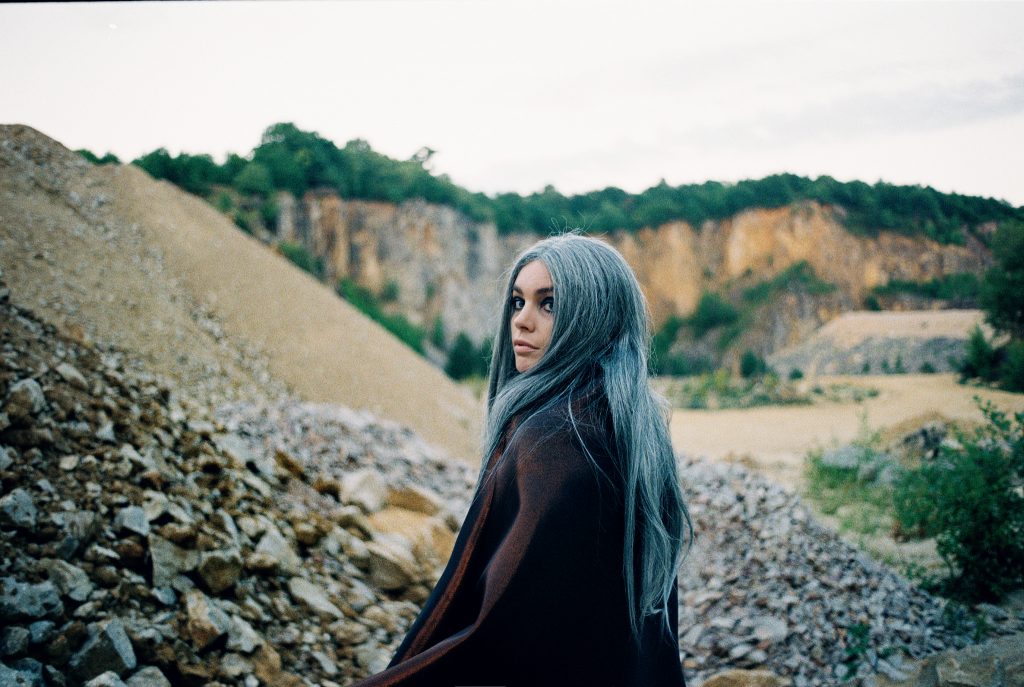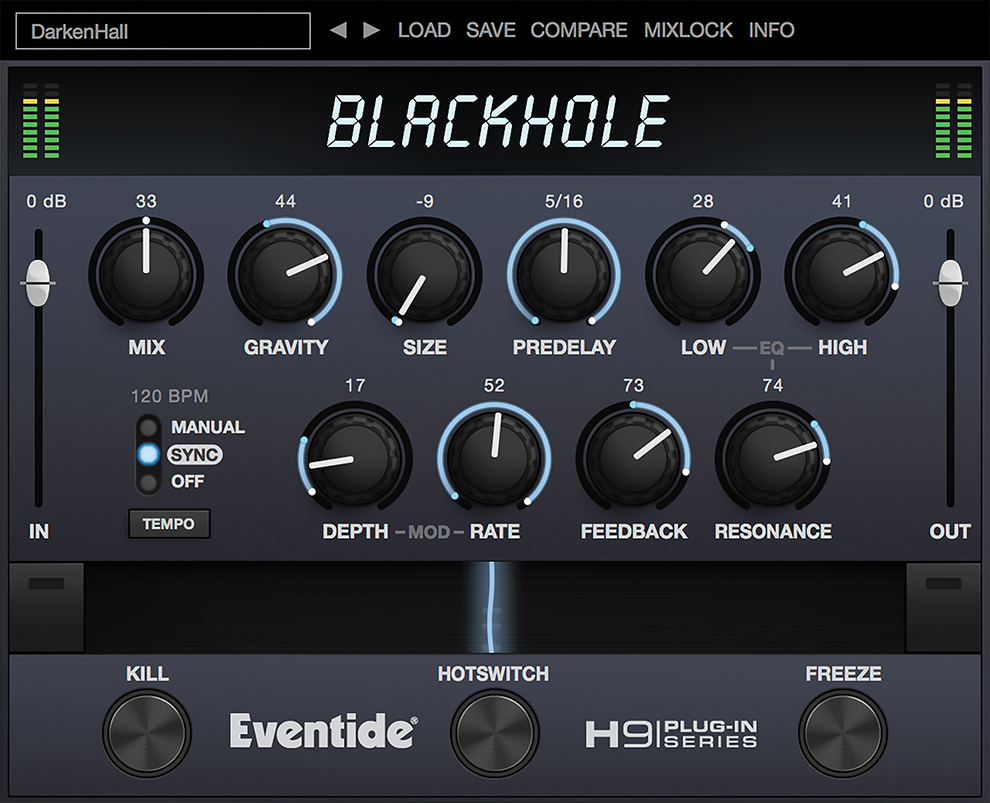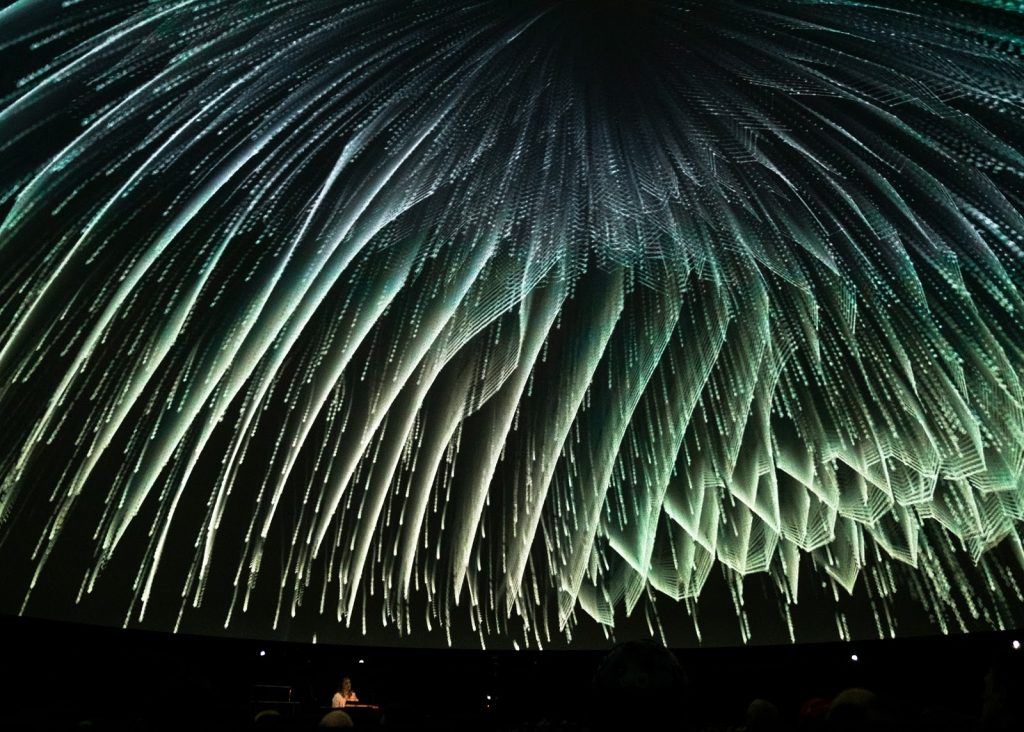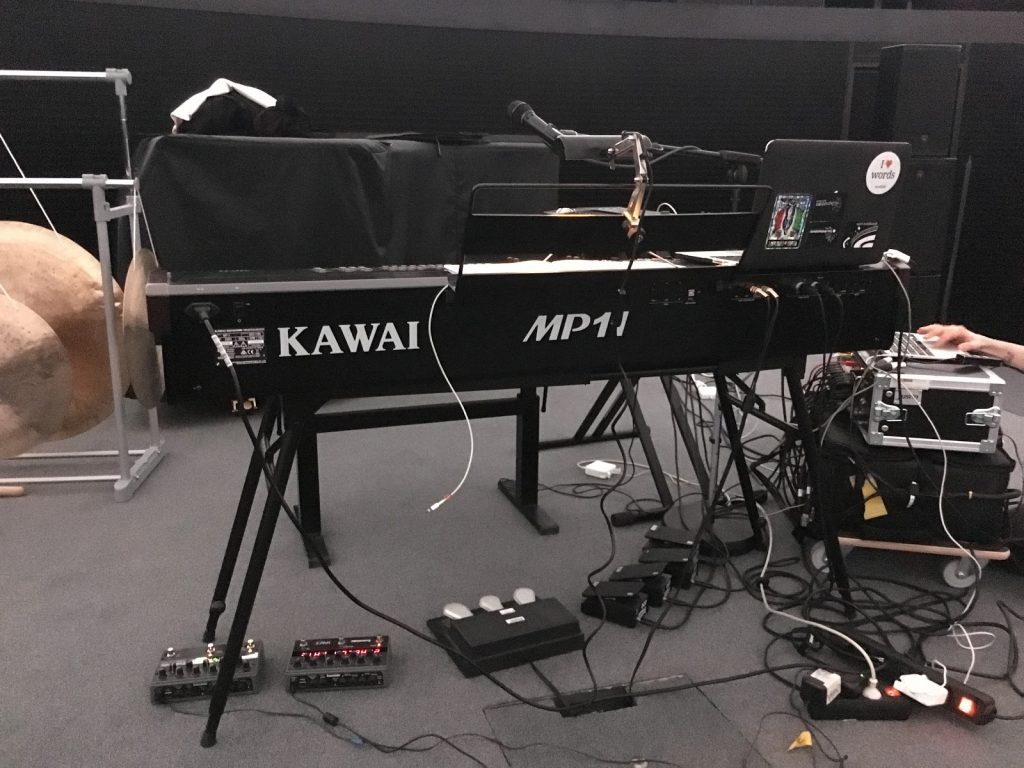This week, electronic musician Emika talked with us about her live rig and studio sound. As a former employee of Native Instruments and a stalwart of the old-school dubstep scene, Emika is a master of effects. But as a longtime pianist and vocalist, she also knows more than a thing or two about performing with pedals!

You’re currently on tour performing material from your most recent album, Falling In Love With Sadness. What hardware and software is shared between the studio and live performance for these songs?
I use Logic to record, mix, arrange and produce in the studio, alongside Eventide plugins and the TimeFactor. When I perform live, I have Ableton running in the background which triggers MIDI clips, hosts software instruments that I play live, and controls different MIDI FX settings. I try to select and use music tech which will perform well in the studio and on the stage, so when I get to the end of the album process there isn’t this huge gap between the two worlds. It’s very depressing to finish an album and then have to start from scratch to try to work out how to translate it into a live setting.
The Eventide TimeFactor was the first bit of gear I started to use that became the link I had been missing, as it sounds beautiful recorded in the studio and is a lot of joy to work with. You can take it out of the studio and simply plug it in and perform. It’s stable and robust. A lot of studio gear is designed to be put into a rack and kept there, or on the software side things can use too much CPU and be a bit buggy to actually depend on them in your live rig.

The piano, my Earthworks vocal mic, and Kawai pianos (either the MP11 or an acoustic upright or grand) are things I have at home, in my studio, and on stage. When I perform, I really want to feel like I am in my zone, in my world, and I manage to bring this bubble into any space and do what I do for real. There isn’t any switch in who I am or how I am, it’s me in the studio with my setup and me on stage with the same gear. Using Logic or Ableton is the main difference between the two. Ableton is like a giant sampler and it’s so stable. But it drives me mad for editing. Whereas Logic, is like this beautiful empty sheet of paper and you can paint anything you like on it while writing and recording.
How did you decide what tools you need to create your music?
I choose the ones with the most beautiful streamlined design. The ones that feel right against my skin, my voice, my fingers. The material, the spacing of the control, the interface, colours in the backlighting, all the details have to feel comfortable and logical. It’s not about simplifying everything so that the gear makes all the decisions on your behalf. I hate not being able to access different parts of the software or control if a company hides this ‘complicated’ stuff to make it easier for the ‘user’ or ‘consumer’. You can tell if a company genuinely understands its customers as either musicians or consumers.
What was the most difficult material in your repertoire to translate from the studio to the stage, and how did you pull it off?
When I first started – having a laptop on stage and singing, it felt like this revolutionary thing that people weren’t doing in the scene. Then after a few albums and tours I began to feel like a joke. Like I had all this musicianship hidden and things I wanted to perform, and the laptop began to feel like my karaoke sidekick. So I had to be brutally honest with myself, and face one of my biggest fears, which was to play piano and sing with it in public. The Eventide TimeFactor kind of saved me. Having the piano, my voice, and the signature delays I have programmed and stored on there, gave me the confidence I needed to sing and play in a very simple way. But these huge dreamy echos and loops meant I could keep my style and vibe. So this unlocked a huge world, where before I had been blocked and couldn’t move forwards. With this current album and show, it’s like my first coming out as an authentic performer, free from just backing tracks and over dubs. Now I can improv and use foot pedals like a true musician, not some chick with a mic and some stuff running in the background.

Why are you using UltraTap and Blackhole live over any other delay or reverb plugins?
Because they are powerful, elegant, deep, complex sounding and pure and simple sounding. I have not found any others like these. A lot of delays sound silly, or when you set them to maximum wet they get very silly, or they become grey algorithms and lose their musicality. Eventide plugs remain true to the music and stay within the musical ranges. There is no ‘meep meep’ computer sounding edges. Just beautiful shapes, colours, and vibes.


Where and when do you manipulate plugins and effects the most while performing?
My voice, piano mainly. My engineer also uses a TimeFactor pedal at the front of house so he can add a layer of effects on the total mix if we are in the mood. My show is more about improvising these days. So being able to jam with effects is frankly the key to any of my successful performances. Sometimes we fight a lot with feedback, so I have to be a bit more careful not to blow up the feedback loops and kill the atmosphere. Recently I performed in the Berlin Zeiss Planetarium in surround sound and this was such a beautiful balanced space, even though it had 80 speakers and was a round room. Somehow we managed to make it all vibey and loud and bassy and wet, but still keep a good sound quality over all.

With a laptop full of plugins, you still choose to bring the TimeFactor and Space pedals with you when you perform. Why do they make the cut?
They make up my signature sound. I have been using the TimeFactor for years. The Space pedal is quite new, I was searching for a creative reverb which didn’t have any grey-sounding areas, and this pedal is so beautiful. I can make the feeling of a backing choir, or like a synth is playing along with me. It’s so magical sounding.
And how do other pedals figure into your live performance as a pianist?
I use the sustain pedal on the piano loads, and I have 4 expression pedals which are MIDI mapped to control parts of the Eventide pedals or plugins.

When do you have the most fun when you’re performing?
When my team are taken care of and the promoter treats us right. Coming into a new country, new venue, having one hour to set up, stepping off a plane into an unknown situation. It can really be a challenge for me to feel comfortable. I sit down at a piano I have never played before, or the light technician is not at the venue yet. Or we discover the PA could be set up better and waste what should be our time, sorting out the venue. As the artist, no one cares about the show more than I do. It is all eyes on me. Especially if it is a sold out show. My fans often fly from other countries to come and experience my music. With all this in mind, I take performing very seriously. And when the event manager and house staff are committed, talented, and ready to work hard, then I can relax and trust those people to do a good job around me. Having to be bossy before going on stage puts me in a weird headspace to perform. Because I am all about love… and I want to be in my music love bubble with the audience. Producing and being the artist is a fine balance between going with the flow, chilling, improvising, accepting compromising and still delivering your best, but also pushing those around you to step up their game and switch on into what you want to get done in a limited amount of time.


